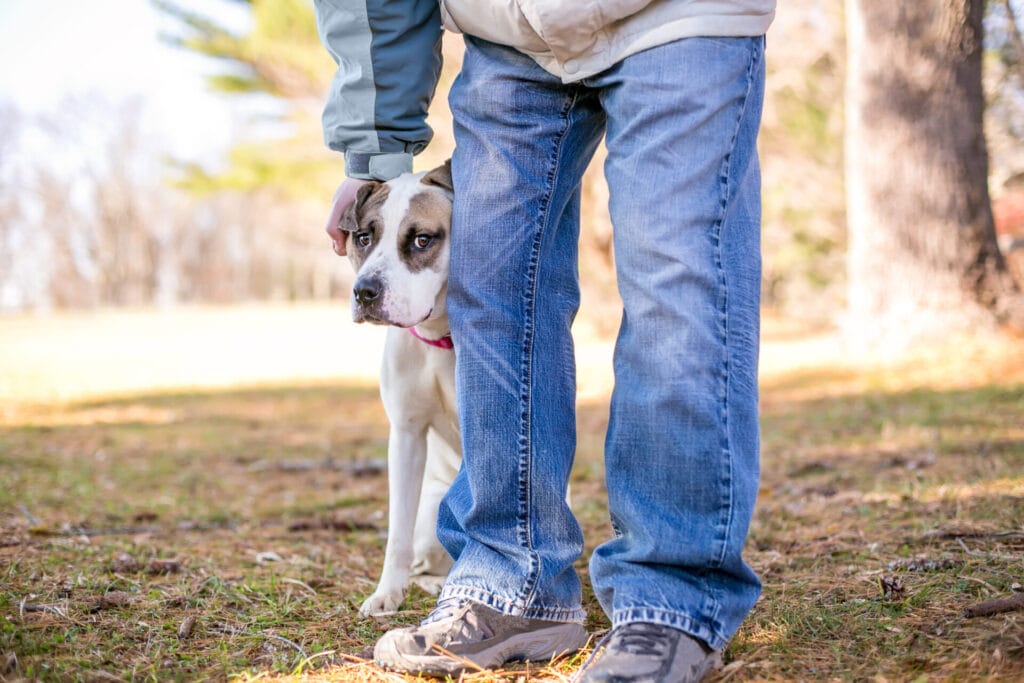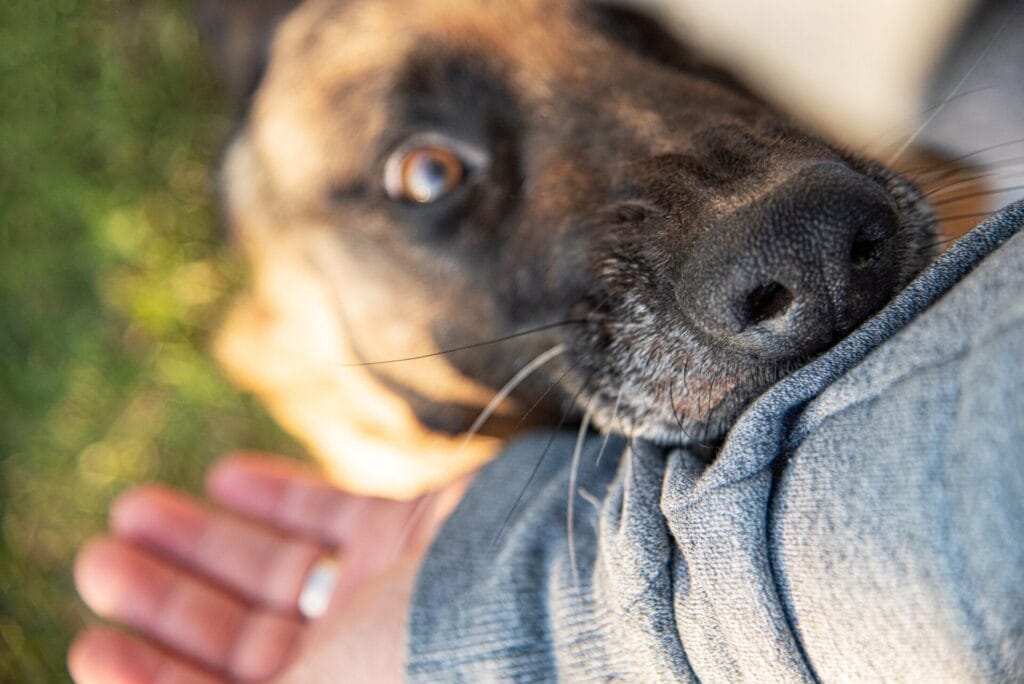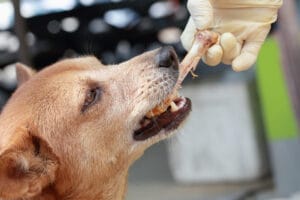Are you struggling with your pup’s aggressive behavior? It’s common for dogs to act out, but unchecked aggression can become a significant problem. Did you know nearly 4.5 million dog bites occur annually in the US? That’s why we’ve compiled tips to help you train your furry friend to be less aggressive. From creating a calm environment to using positive reinforcement techniques, we’ve got you covered. Ready to take control and teach your dog some discipline? Keep reading.
How Do Dogs Show Aggression
Your puppy might be experiencing stress, and you can tell by their actions. Here are some signs that your pet may be feeling aggressive:
- Snarling
- Pulling on the leash
- Growling
- Biting its lip
- Showing its pearly whites
- Biting too much
- Standing as still as a statue
Different Types of Aggression
Dogs can exhibit various types of aggression, depending on the trigger:
- Fearful
- Possessive
- Defensive
- Territorial
- Protective

Five Ways to Train An Aggressive Dog
Wondering how to calm your dog’s aggressive behavior? Here are five steps to help train your dog to be less aggressive. These are fun activities that both you and your furry companion can enjoy.
1. Understand the Underlying Cause
As dog owners, we strive to keep our furry friends happy and healthy. Sometimes, aggression in dogs can leave us confused and worried. The key is understanding the root cause of their behavior.
Like humans, dogs are affected by environmental factors, depression, anxiety, and fatigue. Anxiety affects 1 in 5 dogs in the US, according to the American Kennel Club. Anxiety is one of the most prevalent conditions in dogs, leading to aggression if untreated.
Changes in your pup’s behavior over time can also indicate issues. The ASPCA notes that dogs lacking proper socialization are more likely to display aggressive behavior. Ensure your pup gets plenty of chances to interact with other dogs and people.
2. Ensure Your Dog’s Quality of Life
We all want our pups to have the best lives possible. This means ensuring they get proper nutrition, exercise, mental stimulation, and a comfy home. And, of course, giving them lots of love and affection!
3. Apply Aggression Management Techniques
To help your reactive dog with aggression issues, use effective management techniques. Taking your dog to open and peaceful environments can relieve stress. Regular walks in a dog park can also be beneficial for socialization, provided the other dogs are friendly.
Lack of socialization causes most dog aggression cases. The American Veterinary Medical Association (AVMA) states that up to 50% of dog aggression cases are due to insufficient socialization. Give your dog plenty of opportunities to interact with other dogs and people.
In severe cases, medication may be necessary to treat aggression and depression-like symptoms in dogs. But remember, every dog is different. Providing your pup with a good quality of life is key. So get outside, let them run around, and give them a break from idling all day.
4. Stay Gentle
A common mistake we make with our pups is scolding and being rude when they misbehave. If your dog is aggressive, scolding them will only worsen the situation. Practice patience and understanding. Reward-based training methods can lead to better results in dog training. Make sure to stock up on treats so they’re handy when needed!
5. Visit a Certified Dog Behavior Expert
If your dog displays signs of aggression, seek help from a certified veterinarian. Around 20% of dogs suffer from some form of aggression. Your vet may recommend exercise, mental stimulation, or medication to help your pet. Persistence is key, and always remember, a healthy dog is a happy dog.
Conclusion
Aggression and depression in dogs are serious issues requiring attention. With patience and gentle care, you can help your furry friend overcome these problems. Ensure they have plenty of opportunities for socialization and interaction with other dogs. If you’re still struggling, seek help from a certified veterinarian. Taking the proper steps to care for your pet ensures a happy and healthy life for them—and a lifelong companion for you.




















